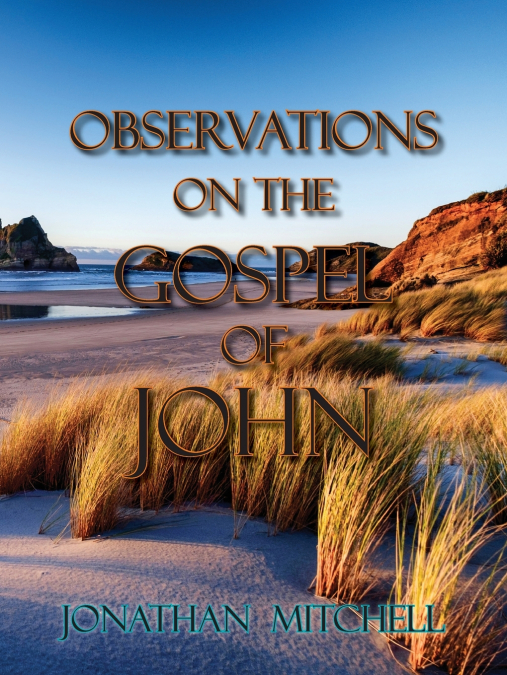
Jonathan Paul Mitchell
This work is comprised of extensive observations on the Gospel of John. Foundational to Christianity, this Gospel is critical to those who sense a call to be a follower of Jesus Christ. As a catalyst for our readers, our purpose is to give attention to the particular details that its author shares, and the nuances and allusions that populate the work. The author’s purpose is given in 20:31, “Yet these things have been written to the end that you folks can (would) continue trusting and keep on believing that (or: should progressively be faithful, because) Jesus is the Christ, God's Son, and so that in continually trusting, believing and being loyal, you can continuously hold (would progressively have) Life [other MSS: eonian life (or: life from, and in the realm of, the Age; age-lasting life)] within, in the midst of, in union with, and centered in, His Name.” This unique genre of ancient literature is all about Jesus Christ: Who He was, His life, His message and the Work that God gave Him to do. It is a proclamation of the Incarnation of the Logos, the Word which was God and which was manifested in Jesus of Nazareth. This story begins with a clear allusion to Gen. 1:1 in the opening verse. It is the Good News about the New Creation. Signs, some of which are designated as such by the author and others that can be observed from the text, appear from chapter 2, and on throughout. Topics of focus are Jesus as the Logos, Light, Life, Bread, Water, Truth, Path (Way), Resurrection and Love. As the Logos, He is connected to God’s creative power, to the created universe, and at the same time, to the Hellenistic world of philosophy. It reaches back to the entire corpus of the OT. He speaks of a new Temple, a new Birth, and a new realm of worship. Metaphors of shepherds and sheep, of a Vine and its branches, and the theme of Life of the Age of the Messiah are also highlighted. The human side of Jesus is seen first of all as Him being “the Logos made flesh,” and then “taking up residence among the People” (1:14). The social side of His life is presented as Him “being in the world” (1:10), attending a wedding (2:1ff), and striking up a conversation with a woman who was a stranger (4:3ff). His public ministry is mostly covered from chapters 2-12; 13 begins His final supper and then 14-16 offer continuous teaching of His disciples, with 17 presenting an intimate view of His relationship with both His Father and His disciples, in His long prayer for them. Chapters 18-20 involve His arrest, His trial, His crucifixion and then His resurrection. In 1:41 Andrew terms Him the Messiah, and in 1:49, Nathanael proclaims Him to be “the Son of God… the King of Israel,” then in 6:69, Simon Peter will acclaim, “we by personal, intimate experience have come to know that You, Yourself, are God’s Holy One.” Considerable time is spent on the various ways that the first sentence of the Prologue can be rendered, and the implications that are associated with each potential rendering. Also included is an extensive investigation of the Greek word Logos, which dominates the theme of Jn. 1:1-14; its use also pointed out elsewhere in this Gospel. Filled with numerous iconic verses for the “Christian Faith”, this is a Gospel about continuously having and holding Life. It is indeed a message of Goodness, Ease and Wellbeing (The Good News). There is no mention of The Unseen (hades) nor of Gehenna (Valley of Hinnom, the dump outside Jerusalem). It is the End of the Old covenant, and the beginning of the New covenant: the continuous, progressive and perpetual redemption of ALL of humanity. Included, after the conclusion of John, is my translation of The Epistle of Barnabas.